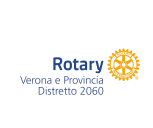The work carried out during the first two years of activity (Phase 1 and Phase 2) has provided promising results on the PP and SH compound families. These compounds have shown significant activity in correcting the functionality of the mutated CFTR protein.
However, further optimization is needed to improve their pharmacokinetic and toxicity properties (ADMET: Absorption, Distribution, Metabolism, Excretion, Toxicity) and to eliminate non-specific activity on undesirable biological targets.
In the early stages, the identification of the active compound PP244 led to the exploration
of a new PP subfamily. At the same time, investigating SH compounds may increase the
chances of finding candidates with pharmacological potential for the rescue of mutated
CFTR. Researchers plan to continue optimizing PP and SH compounds using cycles of
chemical synthesis and functional evaluation. The goal is to refine these compounds so
that, by the end of two years, they meet the requirements for preclinical testing.
For this, researchers will use the Foundation's Primary Cultures Service to test cells from CF patients with class II mutations like F508del and N1303K, as well as stop mutations like W1282X. Some of the tests required for the preclinical evaluation of the compounds will be outsourced to a Contract Research Organization (CRO) to ensure high-quality standards, a key step for future clinical development.
who adopted the project
Rotary Club di verona e provincia

€ 28.000
Delegazione ffc Ricerca di Bologna

€ 114.700
Delegazione ffc ricerca Fibrosirun Monza Brianza

€ 40.000
